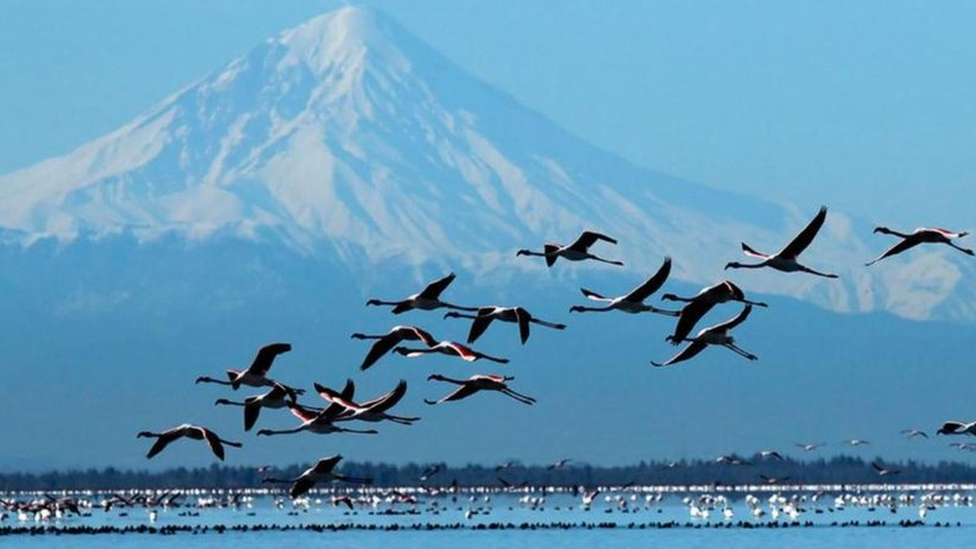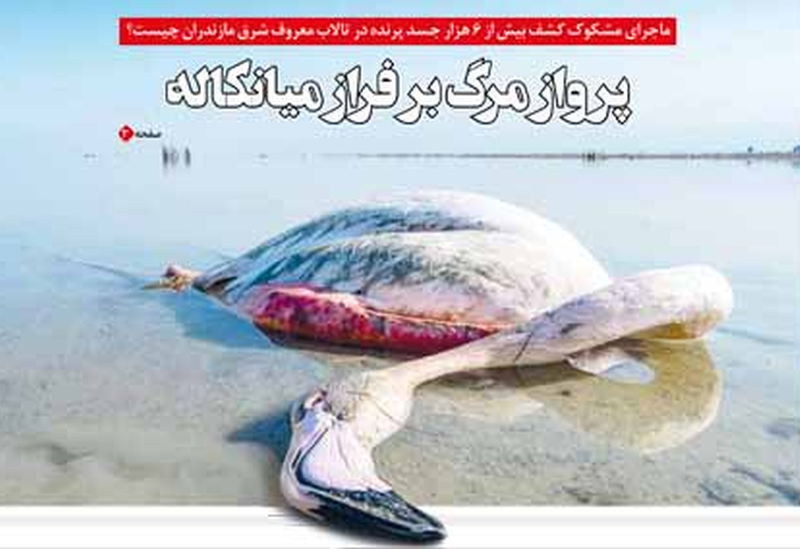Food poisoning fells Iranian migrating birds
- Published

Migrating birds nest in the nature reserve
Thousands of migratory birds have been found dead at an important nature reserve on Iran's Caspian coast, prompting alarm among environmentalists.
"The number of carcasses grew daily over the course of a week, external from 2,000 to 6,000, and local officials expect to find another 2,000 soon," Ebtekar newspaper reported from the Miankaleh Peninsula.
Seyed Hossein Razvani, Mazandaran province's chief vet, told the paper that the number and variety of migratory birds all dying at once looked "abnormal".
An investigation by a special commission from Tehran confirmed his suspicions that the birds had died of food poisoning - specifically avian botulism, which is spread by the consumption of infected maggots, and is often associated with a rise in water temperatures.
The National Veterinary Organisation and Environmental Protection Agency then ordered "sanitary containment measures" in the area, Mehr news agency reports, which largely confirmed steps that the local authorities had already taken, external to shut off access to the peninsula.
The Mazandaran environmental department also banned the hunting of migratory birds and their sale in nearby cities, given uncertainty as to whether the mass deaths posed a danger to human health.
You may also be interested in:
The Miankaleh wetlands sanctuary is home to a wealth of wildlife, but is particularly important for the 250,000 migratory birds, including pelicans and flamingos, that spend each winter there to lay their eggs.
The UN recognised it as a biosphere reserve in 1979, but overgrazing, illegal hunting and fishing, deforestation, and unauthorised dredging of water channels are threatening to dry up the wetlands.
Hossein Ali Ebrahimi, the head of Mazandaran province's environment department, says that almost 20% of the peninsula has already dried up, external, partly due to climate change reducing rainfall, but also because of rivers on the mainland being diverted for industry and farming.
"Water use in the agriculture sector is unsustainable, and means that we have not been able to adapt ourselves to current conditions," he told the Tehran Times last summer.

"Last flight over Miankaleh" was the caption in the Ebtekar daily
Reporting by Martin Morgan
Next story: Iceland stands by Lucifer name ban
Use #NewsfromElsewhere to stay up-to-date with our reports via Twitter, external.